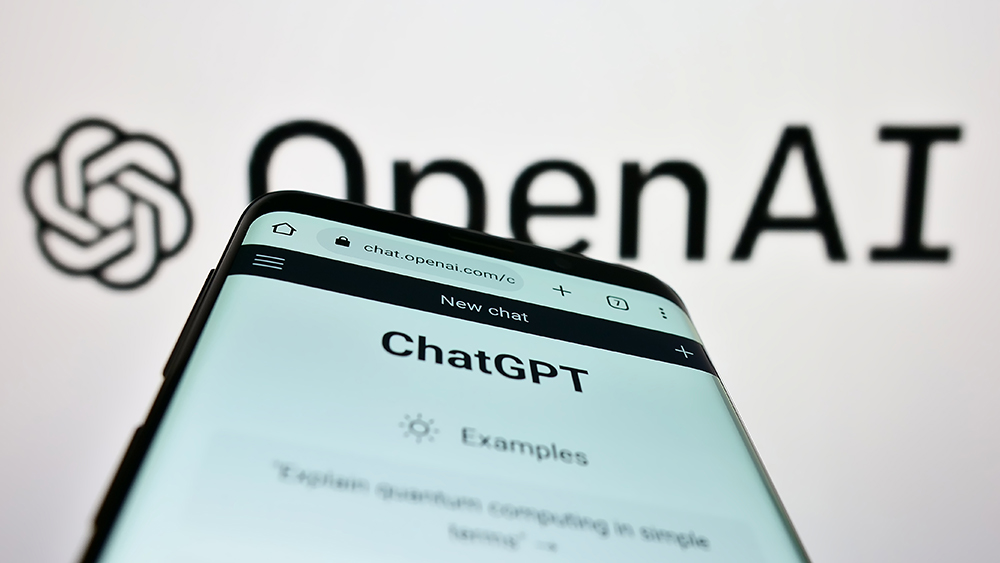 Parler
Parler Gab
Gab
- A proposed U.S. bill aims to end federal funding for colleges requiring student vaccine mandates but excludes health science programs.
- No College Mandates claims loopholes leave medical trainees vulnerable to mandates at clinical sites and universities.
- The bill, inspired by Trump’s 2025 executive order, has bipartisan support but requires amendments to include health science students.
- Advocates stress that 1,000+ colleges imposed mandates in 2021; only 17 now remain but exemptions persist for healthcare training.
- Public pressure, including personalized letters to lawmakers, is critical to amend the bill before its vote.
What the bill misses: Loopholes for health science programs
The federal government’s February 2025 executive order banned vaccine mandates for students at higher education institutions, but federal officials have interpreted the directive narrowly. According to NCM co-founder Lucia Sinatra, the order excluded health science programs at universities and partnerships with clinical sites—an exclusion perpetuated by H.R. 3044. “There’s been no effort to clarify that all teaching programs — even those tied to hospitals — are subject to the executive order,” Sinatra told The Defender. Proponents of the bill acknowledge the gap: under current language, universities could retain vaccine mandates for students in medical, dental, or nursing programs if the policies are imposed by clinical affiliates rather than the schools themselves. For instance, Creighton University requires health science students to meet vaccination thresholds, while Emory University’s medical school mandates shots for enrollment. Sinatra noted that instructors in these programs often avoid the same rules, worsening inequities. “These clauses disproportionately burden young adults pursuing careers in healthcare,” she said.Advocates push to expand bill’s scope with key adjustments
NCM has inundated lawmakers with requests to redefine “higher education” in H.R. 3044 to include clinical programs and residency sites. Their letter argues that federal aid must be contingent on eliminating mandates across university partnerships, as well as within schools themselves. “The proposed law’s failure to close these loopholes makes it toothless,” stated NCM strategist Brenda Baletti, Ph.D., citing a “patchwork of exemptions that created two classes of students.” Current legislation, while ending mandates at 15 remaining holdout schools, would still allow health science students to face requirements when completing required internships or practicums. Sinatra praised Messmer’s bill as a “good start” but emphasized that federal language must “state explicitly” that vaccine mandates for healthcare students invalidate a university’s federal funding eligibility. “Taxpayers shouldn’t subsidize freedom-stealing policies,” she said.The gradual unraveling of mandates—and their lingering legacy
Vaccine mandates for college students peaked in 2021, with over 400 institutions enforcing them. By 2025, that number dropped to 17—but according to NCM, nearly all 44 medical schools in the United States still impose shot requirements on students. Trump’s executive order brought relief to many, but uneven enforcement pushed NCM to pivot its efforts. The group’s 2025 Substack post recounts how academic associations and hospital systems used legal ambiguity to maintain mandates for healthcare-specific programs, even as broader vaccine requirements dissolved. Federal agencies, NCM argues, rely on a “sentence or two” in preexisting statutory definitions—a technicality the group insists leaves loopholes for monitoring compliance.Public action urged as deadline looms
NCM is mobilizing students, faculty and families to press lawmakers ahead of congressional votes on H.R. 3044. Its website features a template letter urging reps to incorporate the amendments, while Sinatra stresses that lobbying in lawmakers’ home districts amplifies impact. “This isn’t just about choices today — it’s about protecting the next generation of doctors,” she said. “If we don’t act now, another pandemic could bring back these tactics without meaningful checks.”A crossroads for student rights and institutional oversight
As the debate over H.R. 3044 intensifies, the stakes are framed beyond health science students. NCM’s push to redefine its scope reflects broader tensions about federal authority, educational rights and who gets to define “essential” rules for public money. With the bill’s final draft pending, lawmakers’ decisions will determine whether the law finally dismantles all remnants of coercive vaccination policies — or allows exemptions to persist under legal loopholes. Sources for this article include: ChildrensHealthDefense.org Substack.com FederalRegister.govOpenAI CEO joins revolt against Democratic Party’s turn toward socialism
By Willow Tohi // Share
No safe amount of processed foods exists, study finds, debunking moderation myth
By Cassie B. // Share
Robot performs first fully autonomous surgical task – a blend of AI and precision?
By Willow Tohi // Share
Governments continue to obscure COVID-19 vaccine data amid rising concerns over excess deaths
By patricklewis // Share
Tech giant Microsoft backs EXTINCTION with its support of carbon capture programs
By ramontomeydw // Share
Germany to resume arms exports to Israel despite repeated ceasefire violations
By isabelle // Share










